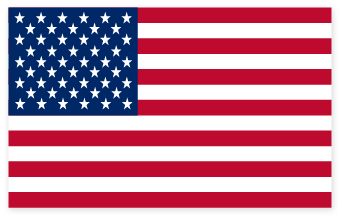Since we check before we nullify the chametz the Bedikah is the only way we won’t transgress Bal Yeraeh, therefore even a very clean house needs to be checked. Then we are worried we didn’t check well enough we nullify it as well. It is even better to sell what you missed so there is no chance of transgressing anything. Yes, you can give the chametz to a Non-Jew instead of burning it.
Explanation:
The first Mishna in Pesachim says : On the night preceding the fourteenth we check the chametz.
The Rishonim argue why do we do Bedikah.
Rashi says we check so we don transgress Bal Yeareh.
Tosfot asks that is it sufficient from the Torah to nullify your Chametz you don’t need to check to remove al Yerah. Rather it is only a Rabbinic law. The reason the Rabbis required it is was in case you see chametz in your house you might eat it without realizing.
The reason the rabbis were much more stringent here than other prohibitions because of two reasons:
Since a person is very used to eating chametz the whole year round and you are used to eating it, you might eat it without realizing.
We find that he Torah is very stringent in the prohibition of Bal Yiraeh more than others therefore the Chacham required you to be sure that there is no chametz in the house at all.
The Ran answers for Rashi that sometime the Bedikah is from the Torah, it depends if he did bitul. If he did, then it is Derabbanan, and if so, then, when Rashi wrote you check so as not to transgress Bal Yeraeh is only when you didn’t nullify the Chametz. Rashi is talking about hen no one nullify the chametz.
The Bartenura explains that Rashi is worried that even after nullification you might find a small piece of chametz and eat it.
Therefore, you must do the Bedikat Chametz even if your house is clean.
The Bitul (nullification) is needed :
Tosfot if Nullification is making the chametz ownerless. Since the Torah say, “You should not see your…”The Beraita understood that you are not allowed to see you r chametz but fi isn’t yours there is not problem.
The Ramban writes the nullification helps to make it not chametz but dirt and you do not transgress anything.
The Rambam (ChuM 2:2) what is this destruction mentioned it the troth? Itis that one nullifies chametz in heart and considers it dirt and that there is no chametz at in your possession and thing that is there is like dirt which is unneeded.
R’ Shmuel Rosovsky wrote that the last par to the Halacha tells me that the nullification works by revealing his will that chametz is unneeded so you are in effect rejecting any chametz from your possession.
The Gemara in Pesachim 6a: Ra Yehuda said in the name of Rav even after Bedikah one must do Bitul. Rava explained maybe you will find a nice piece of chametz and eat it.
According to Tosfot one needs to do Bedikah as well because maybe you will eat from the leftover nullified chametz.
Some say we are concerned you will not do a full nullification as what is required.
So rules the Shulchan Aruch and the Mishna Berura.
Why do we do Mechirat Chametz as well?
The Rosh writes: A Yisrael and a Non-Jew who were on a boat and the Jew has chametz he should sell it to the Non-Jew or give it to him and then take it back after Pesach. So rules the Shulchan Aruch 448:3)
The Chatam Sofer writes (OH 113) the custom of all the Jews is to sell their chametz and anyone who speak out against it should be sharply reprimanded.
There are some opinions who say it doesn’t work, (Bechor Shor and Machatzit Hashekel). Therefore, it is better that one gets rid of all his chametz out of the house. Unless there is some loss involved .
R’ Shlomo Zalman Auerbach wrote that even though he cleaned his house top to bottom he should still do a Mechira to be sure there is no chametz at all. So ruled R’ Elyashiv.
In Or Letziyon, R’ Ben Tziyon Abba Shaul writes if you remove all the chametz, then there is no need to do Mechirat chametz. Since the chametz you sell you do not nullify, if there is a small piece of chametz less than Kazayit and less than a prutah the sale work on
You are allowed to give the chametz as a gift. So rules the Shulchan Aruch 448:3
.
The Chok Yaakov points out that there is no problem of Lo Techanem (one cannot give a Non-Jew a free gift) since it is only forbidden to give a goy you don’t know. He adds that since chametz is forbidden to derive benefit one may give it to any goy.



